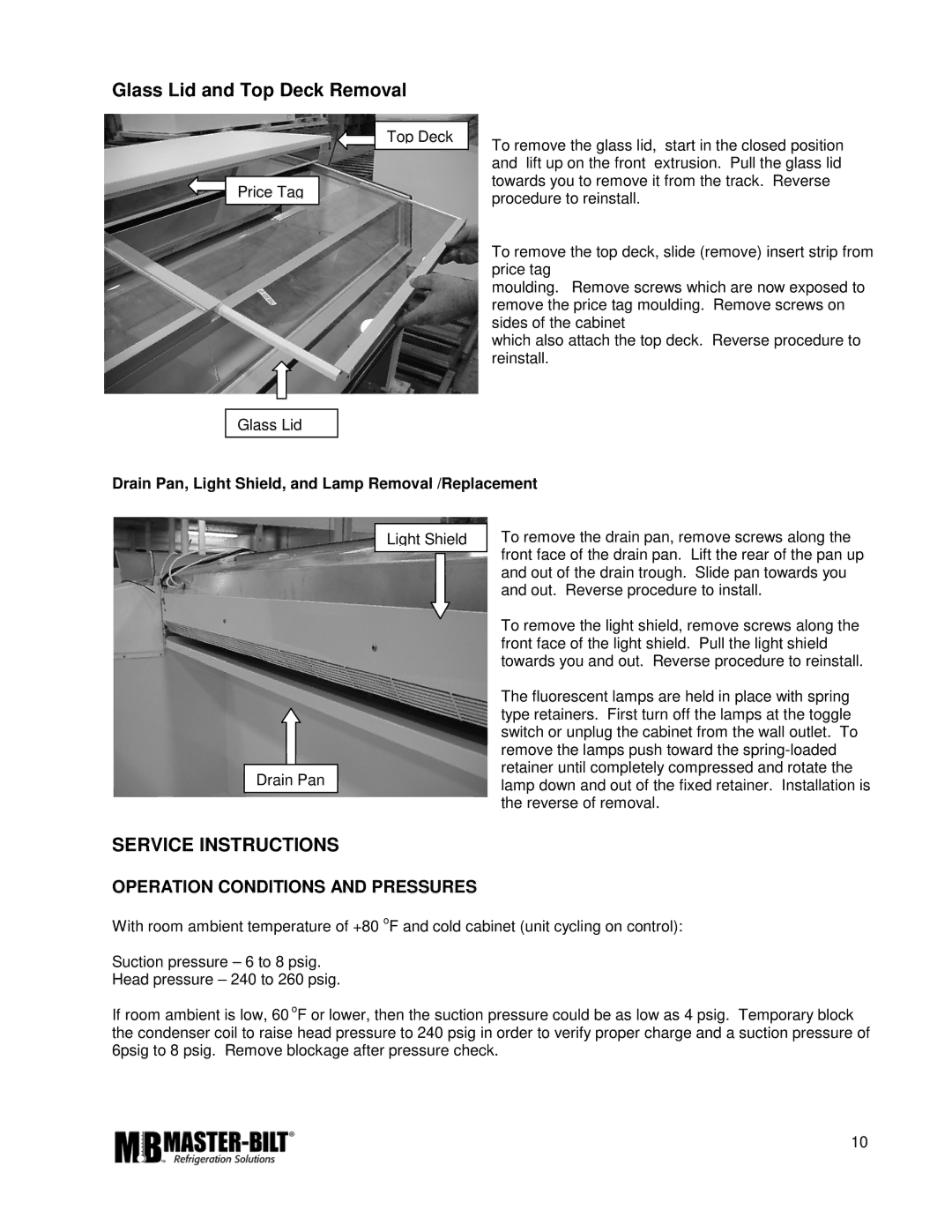GT-80, GT-50, GT-60 specifications
Master Bilt has established itself as a leader in the refrigeration industry, particularly with its range of commercial refrigerators and freezers, including the popular GT series. The GT-60, GT-50, and GT-80 models exemplify the brand's commitment to quality, efficiency, and advanced technology.The Master Bilt GT-60 is designed for maximum storage capacity with a generous interior space that allows for easy organization and access to stored items. Its exterior is crafted from durable stainless steel, ensuring longevity and resistance to corrosion. One of its standout features is the advanced digital thermostat, which provides precise temperature control and easy monitoring of internal conditions. The GT-60 is also equipped with a self-contained refrigeration system, which simplifies maintenance and enhances energy efficiency.
Similarly, the GT-50 model is engineered with the same focus on reliability and performance. With a slightly smaller footprint compared to the GT-60, it is ideal for establishments with limited space but still requires ample storage capacity. The GT-50 features energy-efficient LED lighting that not only illuminates the interior but also reduces overall energy consumption. This model also includes secure locking doors, ensuring that valuable inventory remains safe.
The GT-80 stands out for its impressive cooling capacity, making it exceptionally suitable for busy commercial kitchens and restaurants. It is designed to maintain optimal temperatures even under heavy load conditions. The model incorporates an innovative airflow design that promotes uniform cooling throughout the unit, preventing temperature fluctuations that can compromise food quality. Additionally, the GT-80 boasts easy-to-clean interiors, with removable shelving that makes cleaning a breeze.
All three models feature environmentally friendly refrigerants, aligning with global standards for energy efficiency and sustainability. Each unit is designed to operate quietly, reducing noise pollution in busy kitchen environments. The GT series combines robust construction with advanced technology, ensuring that each unit not only meets but exceeds the demands of the modern food service industry.
In summary, the Master Bilt GT-60, GT-50, and GT-80 models offer exceptional features that cater to the diverse needs of commercial users. With their focus on efficiency, durability, and advanced refrigeration technology, these machines have become indispensable assets for restaurants, cafes, and food service operations.

